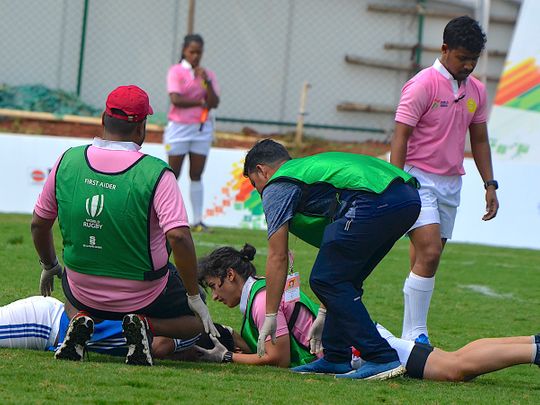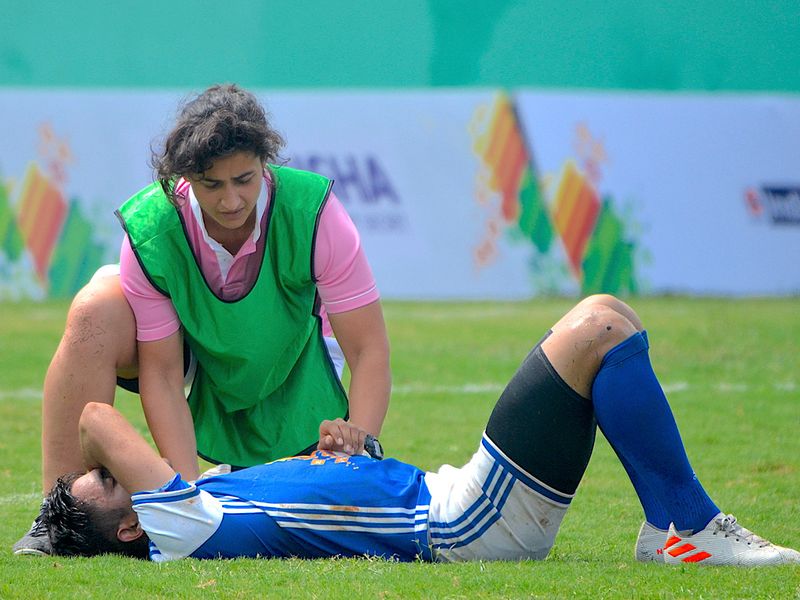
Dubai: The body contact sport that rugby is, it’s not really a surprise that Indian women have not really warmed up to it to excel in the international arena. It was hence a revelation when a bunch of spunky women, led by Vahbiz Bharucha, returned with a bronze medal at the Asian Women’s Division 1 Rugby Championship in the Philippines last year.
Over to Bhubaneswar, the capital of eastern Indian state of Orissa, Bharucha - a qualified physiotherapist - has assumed a different role in the men’s rugby tournament at the ongoing Khelo India University Games 2020. Armed with an ice pack, a bottle of water and a pain-relieving spray, the 26-year-old waited at the sidelines - at the beck and call to attend to any injured player. She sprints to the field without loss of time and attends to the player, making a quick assessment of the impact of the injury and tends first-aid.
Doesn’t she itch to have a go at the action herself? “My feet are itching to be on the field so that I can chuck the ball or maybe make a tackle, but I have come here to Bhubaneswar mainly to be the medical on the field for the three days. I am grateful to Rugby India and Sports Authority of India that they gave me this responsibility,” Vahbiz says in an interview during the three-day event from February 26-28.
“There was a time when I focused only on the sport and my physiotherapy work took a back seat. I have also been at the other end of the spectrum and my game went for a toss and I got dropped from the Indian team. But now I have found the balance I have managed, working in the first half of the day and training as an athlete in the latter half,” she says.

One of things that caught her attention even on the first day of rugby competition is the need for players to be educated a lot more about their own bodies. “It is one of the red flags for India, especially in a sport like rugby. Some athletes are roped in because they have speed or the physique but there is a lot more that goes into the making of a player if we want to reduce, if not completely prevent, the possibility of injuries,” she says.
The India captain, multi-tasking as the physiotherapist, has a simple message for the teams. “It is okay to leave the field because of an injury and not risk aggravating it. I had just finished telling a player, who got hit on the face by a rival player’s shoulder, not to move his neck, when his teammates were provoking him to resume playing. The mentality needs to change,” she says.
“An event like the Khelo India University Games (which encompasses 17 disciplines) gives athletes the chance to find out what a professional set up looks like. The seriousness with which people are in this – athletes, officials, volunteers – helps the athletes prepare for higher competitions. The benchmark is set very high. I am sure more universities will want to set up rugby teams now,” she added.








